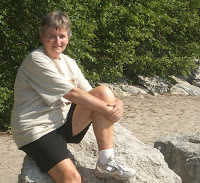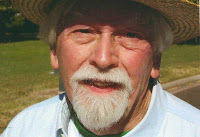The old black-and-white movie flickers and jumps. A woman screams. And laughs. And cries.
‘You’re hysterical,’ booms a strong male voice.
A strong male hand slaps the woman’s cheek. Silence; followed by a quiet sobbing.
That is hysteria in the movies.
I actually don’t think I have ever experienced that kind of hysteria; my own or anyone else’s. Perhaps it has never actually existed, outside of old movies. Or perhaps I have simply been extremely fortunate, having lived a life free of horrifying experiences which might create hysteria in myself or others.
No, I have not had to live such nightmares; but certainly I have seen them unfold on the TV. I have watched everything from terrorist attacks to mass shootings, from earthquakes and mudslides to tsunamis, hurricanes, and tornadoes. I have seen people’s response to such things. But, you know, I honestly cannot recall hysteria. People run, sometimes screaming, but that is a simple reaction to danger – the good old fight or flight response. I have seen tears: strangers enfolding each other in comforting arms, injured individuals sitting on the ground, alone and confused. That is shock and grief. It is not hysteria. Desperate people wave to helicopters from rooftops barely protruding from floodwaters. They shout for help from beneath heaps of rubble. These are people trying to save themselves. They are not hysterics. It makes little sense to me that hysteria should be encouraged by Mother Nature, anyway. She has given us an overwhelming survival instinct. We will do whatever it takes to live. Hysteria is counterproductive; it interferes with our ability to save ourselves. I’m sure it’s not listed on Mother Nature’s list of approved survival tactics.
On the other hand, a much more dangerous form of hysteria is alive and well and ever expanding, especially in recent years with the phenomenal growth of social media; mass hysteria. Until recently, this kind of group emotion was of necessity engendered in a group – a physical group of people close together, shoulder to shoulder, acting in ways none of them would have alone. The New Year’s Eve festivities downtown are great fun until a few idiots begin to egg each other on to break some windows. Before anyone realizes what is happening, dozens or even hundreds of people are heaving anything handy through windows, and the looting starts. Mass hysteria tends to lead to mass arrests. The soccer game is over and the crowds wending their way towards the stadium exits. A gang of lager-louts, till now only a little obnoxious as they react to the home team’s win or loss, begin an argument with opposing supporters. Voices get louder. Voices get angry. One man swings a fist. In seconds dozens of fists are swinging. Innocent bystanders rush for the streets. Hundreds are trampled in the panic; dozens killed and injured. And even without physical violence, hysteria is ugly. Just watch our political conventions.
Lately an even more frightening, more pervasive, form of mass hysteria has appeared, fomented by social media. An angry young man no longer needs to fly to Syria and attend a mosque frequented by violent extremists to become what we now chose to call ‘radicalized’. He can work himself into a frenzy of hatred and bigotry simply by reading what is offered in great abundance on his iPhone or laptop. He barely needs to get up off the couch. Perhaps he will never appear on any no-fly- or watch-list, but he is every bit as dangerous as those who do.
Mass hysteria is almost as scary even when involving no actual violence. These days all it takes is sound bites; Obama was not born in this country, Hillary is a crook. Repeat it often enough via all forms of social media, but particularly TV, and some of those listening will repeat it. Some of those hearing it will then repeat it, and in twenty-four hours there is this ground-swell of mass hysteria all based on a lie.
But strangely, I have observed recently, social media can create something which seems to me even stranger; almost the antithesis of hysteria. But if the opposite of hysterical is calm, this is behavior surpassing anything the word suggests to me. It is a level of denial for which I think we have no word. It seems to have appeared along with the universal inclusion of cameras in cellphones.
On the TV screen I see a man almost up to his armpits in swirling water. He holds one arm above his head, gripping his phone in his hand. Debris of all kinds swirls around him in the rising waters of Tropical Storm Sandy. He shouts breathlessly into his phone, capturing the image of himself struggling to remain upright. His commentary, as played on the television, consists mainly of beeps.
‘I’m here in bleeping New Jersey, in my own bleeping house. I’m standing in my bleeping kitchen, man. I don’t see how the bleep I’m gonna bleeping get out of here.’
He turns the camera off himself to show a jerky unfocused view from a window.
‘And over there it bleeping looks like every bleeping thing is on fire, man. How the bleeping bleeping bleep do you get bleeping fire on bleeping floods? Bleep. Bleep.
I gotta bleeping get up to the bleeping roof. Bleep … bleep ……’
After a few seconds of wildly gyrating film of ceiling and walls and water, everything goes blank and silent.
You see more and more of these death-defying shots, movies, and commentaries. People seem increasingly more interested in capturing their own images for posterity than in saving their own lives. Mother Nature must be very confused and frustrated!
Or perhaps she’s happy to see them go, cleansing the gene pool.
My very favorite so far, and I say so far because I reluctantly doubt that this new phenomenon is going away, is a still shot of a young woman in a bikini who obviously waited for the perfect moment to get a selfie as the tsunami waves broke through the windows behind her.
What is wrong with these people? I have no training as a psychologist, but I’m not too sure that your average shrink understands why people act this way, though there is, doubtless, at this very moment, at least one Ph.D student studying the topic.
Apparently the two people I have just described must somehow have survived. We have the content of their presumably intact phones. But how many, I have to wonder, have died in the grip of this strange ‘anti-hysteria’? I am starting to think that a good old-movie style face-slapping bout of hysterics might look downright healthy.
© August 2016
About the Author
I was born and raised in England. After graduation from college there, I moved to the U.S. and, having discovered Colorado, never left. I have lived in the Denver-Boulder area since 1965, working for 30 years at IBM. I married, raised four stepchildren, then got divorced after finally, in my forties, accepting myself as a lesbian. I have been with my wonderful partner Betsy for thirty years. We have been married since 2013.


